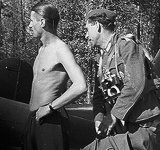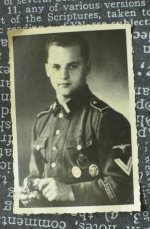Olsen
Well-known
Who's the phographer?
Who's the phographer?
Picture 28 shows a 'fliegender knipser', ein soldat der keine Fliegmonteur trägt.
A soldier/phographer with no flight harness.
Who's the phographer?
Picture 28 shows a 'fliegender knipser', ein soldat der keine Fliegmonteur trägt.
A soldier/phographer with no flight harness.



